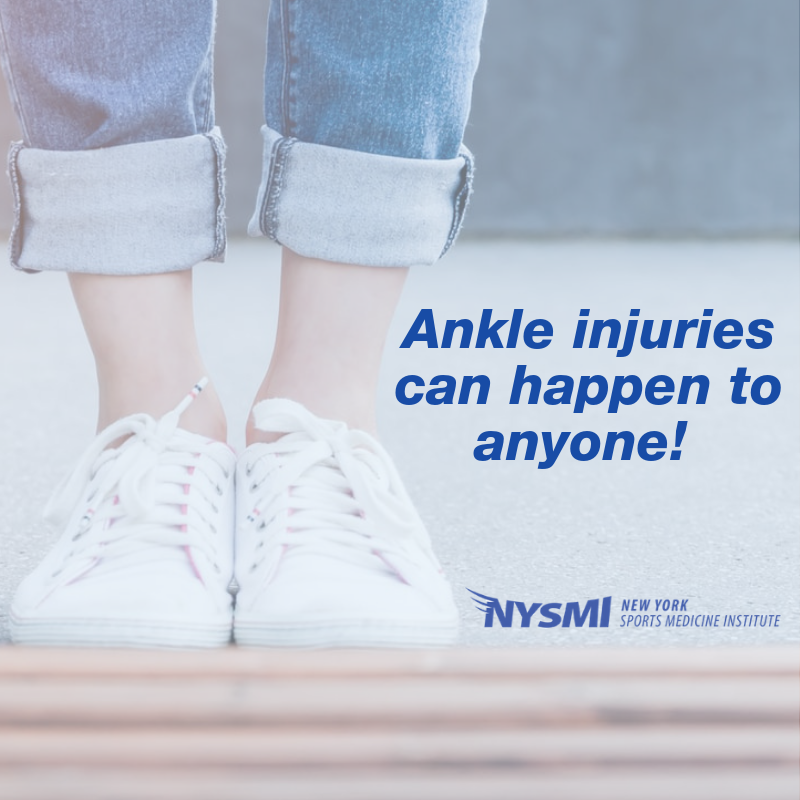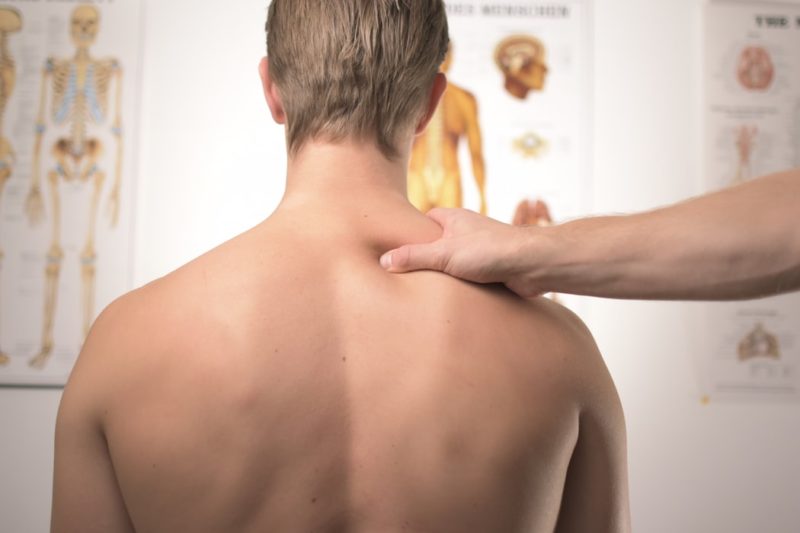
Orthopedic Doctor in Midtown
DR. NEIL S. ROTH – Orthopedic Doctor in Midtown
For the third consecutive year, New York Sports Medicine Institute founder Neil S. Roth, MD has been recognized by New York Magazine as one of New York’s Best Doctor in Midtown. This prestigious list is determined by other doctors, and NYSMI takes pride in what is yet another acknowledgment of the high level of expertise that can be found at the New York Sports Medicine Institute.
New York Sports Medicine Institute – a comprehensive sports medicine practice providing orthopedic surgery, physical therapy, and concussion care – provides patients living or working in Westchester access to the region’s top sports medicine doctors and healthcare professionals in a single convenient White Plains location.

Dr. Roth is a board-certified orthopedic surgeon, specializing in sports medicine, shoulder, elbow and knee surgery. Dr. Roth completed his sports medicine fellowship training at the world-renowned Kerlan-Jobe Orthopedic Clinic in Los Angeles, and he served as an assistant team physician for the Los Angeles Lakers, Dodgers, Kings and Angels, the Anaheim Ducks and the University of Southern California. He has consulted on orthopedic issues with the New York Yankees and Oakland Athletics baseball clubs. Dr. Roth has been a member of the staff of the prestigious Lenox Hill orthopedic teaching hospital in New York City since 2003, and where he still practices. He is a highly skilled and experienced orthopedic doctor in Midtown, Manhattan on 210 East 64th Street. Schedule your appointment today by filling out a form on our website.
Local Orthopedic Doctor in Midtown
Recent Blogposts – Orthopedic Doctor in Midtown NYC
How Do I Know If My Knee Pain Is Serious?

Whether you’re an athlete or not, knee pain can affect anyone at any time. It can be caused by nearly any kind of action or incident, even if it’s just as simple as walking down the street. Knee pain can range from mild to severe, and can often linger if not properly diagnosed or given the right treatment method. At New York Sports Medicine Institute, our orthopedic doctor in midtown can help accurately diagnose and treat your knee pain. Our orthopedic surgeons are skilled in a variety of different knee injuries and are well-experienced in determining the best plan for your recovery. Continue reading to learn more about knee pain and how you can tell if it’s a more serious issue.
What are the symptoms to look out for?
With symptoms ranging from less severe to significant, it’s important to take note of how your pain progresses each day. This is a key factor in determining whether or not your knee pain is more serious. The most common types of knee pain symptoms include:
- Stiffness or the inability to straighten or bend the knee(s)
- The surface of your knee feeling warm to the touch
- Popping, clicking, or any other unusual sounds while walking
While these symptoms can indicate the presence of a minor injury, more serious injuries may include symptoms like:
- The inability to stand
- Limping
- Swelling, redness, and fever
- Abnormal appearance revealing a visible sign of injury
- Falling immediately upon standing
The most important thing to look out for when determining if your knee pain is serious is to pay attention to your symptoms. If your slight knee pain starts to develop into the more significant kinds of symptoms as stated above, you should schedule a visit to our orthopedic doctor in Midtown. This could mean you have a more serious injury that requires a proper diagnosis and treatment plan.
How are knee injuries diagnosed?
An orthopedic doctor will conduct a physical evaluation to determine which diagnostic method would be best. Various methods are used to locate the source of the pain and can include:
- Ultrasound technology – This technique utilizes high-tech sound waves to produce images in real-time. This can help distinguish where the injury is located.
- X-rays – Similar to ultrasound technology, x-rays are also used to produce images. But, rather than using sound waves they utilize electromagnetic radiation to curate the images. X-rays are often used to find suspected injuries, malformations, or conditions.
- CT Scanning – CT scans are usually ordered if the doctor believes there is a possible injury in tissues, joints or bones. This type of scan produces images that allow a better view of the inside of the body at different angles and positions.
- MRI – Magnetic resonance imaging, or MRI, can allow the doctor to see the inside of the knee and its anatomy. MRI is a form of 3-D imaging that provides a detailed perspective of the knee structure.
- Arthrocentesis – this form of testing is used to examine joint fluid.
The most common type of knee injuries
A number of different issues and conditions could be the reason for your knee pain. Traumas or incidents that occur due to sports or various other actions can cause injuries such as:
- ACL injury
- MCL injury
- PCL injury
- Meniscus tear
These injuries can all range in the level of severity, further depicting which kind of treatment plan is needed. Mild sprains can typically be healed using nonsurgical methods. Whereas full-blown tears and fractures may require surgical procedures.
Underlying conditions that commonly cause knee pain also include:
- Arthritis including osteoarthritis
- Damaged menisci
- Bursitis
- Pseudogout
- Chondromalacia of the patella
- Tendonitis
If you find that your knee pain is only getting worse and is starting to affect your everyday life, it’s time to schedule an appointment with our orthopedic doctor in Midtown. Our orthopedic doctor can help to find a definitive answer to what is causing your knee pain and provide you with an optimal treatment plan for your recovery. So stop living with your persistent knee pain and schedule an appointment with our orthopedic doctor today!
How Do I Know If I Have A Rotator Cuff Injury?

Rotator cuff injuries are extremely common, but can often go undiagnosed. Some patients may not even be fully aware of where the rotator cuff is located precisely. A rotator cuff is essentially a group of muscles and tendons that keeps your upper arm bone firmly in its shoulder socket. Individuals who have had rotator cuff injuries can attest to how painful and debilitating it can be, even when you’re only doing everyday activities. In order to know if you do in fact have a rotator cuff injury, it’s vital to understand whether or not you’re at risk, what the common causes are, and the types of symptoms you should be monitoring. If you’ve been dealing with discomfort and pain in your rotator cuff and have been searching for an Orthopedic Doctor in Midtown, contact us at New York Sports Medicine Institute. We offer both orthopedic care and physical therapy treatments for our patients to help them get back on track. Continue reading if you want to learn more about rotator cuff injuries and how you can detect whether you have one or not.
Who is at Risk?
Being that the rotator cuff is responsible for keeping your arm bone stabilized in the shoulder socket, individuals who perform repetitive motions with their arms can be at risk of developing a rotator cuff injury. Some examples include carpenters, painters, and those who are lifting objects repeatedly. Those who play sports such as baseball, tennis, and wrestling, which involve constant repetitive arm motions, are also at risk for a rotator cuff injury to occur. As patients age, their risk for developing this type of injury also increases, making older individuals much more susceptible to rotator cuff injuries.
Common Causes
Some of the common causes of rotator cuff injuries can vary, depending on the severity of your particular injury. Rotator cuff injuries are typically broken down into three distinct categories, such as:
- Tendonitis – a condition that can occur if the rotator cuff is being overused, causing inflammation in the tendons.
- Bursitis – caused by inflammation of the bursa, or fluid-filled sacs in between the rotator cuff and the arm bone.
- Rotator cuff strains or tears – this can be caused by an acute injury or overuse of the rotator cuff over time. This occurs when the tendons that connect muscles to bones becomes overstretched or even torn. This type of rotator cuff injury typically causes immediate and severe pain.
Symptoms of a Rotator Cuff Injury
It’s important to note that not all rotator cuff injuries lead to the development of pain. Some rotator cuff injuries can be the result of certain conditions that build up over a period of time. That being said, some common types of symptoms associated with rotator cuff injuries may include the following:
- The weakening of the shoulder.
- Tenderness or pain when trying to reach overhead.
- Pain in the shoulder, which is heightened at night.
- Difficulty sleeping on the afflicted shoulder.
- Loss of full range of motion in the shoulder and/or arm.
- Deep to dull aches in the shoulder and/or arm.
- Unable to carry out normal activities due to pain or discomfort.
If you have been experiencing any of these symptoms for a duration lasting longer than a week, it’s crucial you visit an orthopedic surgeon.
Diagnosing a Rotator Cuff Injury
A doctor will be able to determine and diagnose your rotator cuff injury by conducting a physical examination, analyzing previous medical history, and utilizing various imaging scans. These scans can include:
- X-rays.
- Magnetic resonance imaging (MRI).
- Ultrasounds.
Your orthopedic surgeon will be looking to see what your arms range of motion is like if there are any tears present, and whether other conditions such as arthritis, can be ruled out.
Treatment Options
If you are diagnosed with a rotator cuff injury, there are several different treatment plans available. These options can range from home remedies to surgery depending on the extent of your injury.
Non-invasive treatment methods have been reported to help improve symptoms by nearly 50%. These various treatments consist of:
- Applying cold or hot packs to reduce swelling and inflammation.
- Resting the affected shoulder and wearing a sling for added support.
- Exercising to help restore and improve your arms range of motion.
- Over-the-counter anti-inflammatory medications, such as ibuprofen.
- Physical therapy.
Other forms of treatment, such as surgery and injections, are typically recommended for those who have a much more severe rotator cuff injury. Steroid injections into the shoulder joint can provide temporary relief, but should not be used frequently as they can weaken your tendons. When it comes to surgery, there are various different kinds that can be performed depending on the type of rotator cuff injury you may have developed.
How to Prevent Future Rotator Cuff Injuries
Preventing rotator cuff injuries from happening in the future is possible. If you have had a previous rotator cuff injury, it’s important to consult with your physical therapist so they can provide you with daily stretches and exercises to help strengthen your shoulder. If you have been looking for an Orthopedic Doctor in Midtown, visit us at New York Sports Medicine Institute. Not only do we offer superlative orthopedic care in Midtown, but we also have highly-experienced physical therapists who work one-on-one with our patients to ensure they stay injury-free. Other prevention methods can consist of taking a break from playing strenuous sports or avoiding repetitive motions involving the arm and shoulder.
Contact Us
If you have been experiencing pain in your rotator cuff and think you might have an injury, contact us at New York Sports Medicine Institute. Our Orthopedic Doctors in Midtown are highly-experienced in handling these types of injuries and can help provide you with the appropriate treatment plans necessary. So don’t wait, contact us today to schedule an appointment!

New York, NY, 10021
